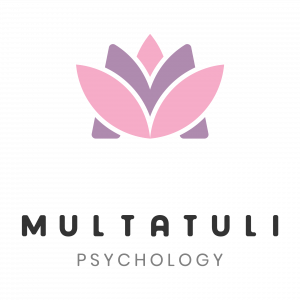
Developmental Disorder
A developmental disorder can be a neurological or mental illness that usually occurs in children or adolescents. This disorder hinders the normal development of a child. It may be that a developmental disorder is not diagnosed until later in life. Successful treatment is possible but becomes increasingly difficult at a later age. It is therefore important to diagnose a developmental disorder early.
What is a Developmental Disorder?
Various developmental disorders are distinguished, including a distinction between neurological and psychological disorders. The symptoms are very diverse and can have different causes. Some conditions are temporary, other conditions will remain throughout the life course.
The nature of the symptoms can lie in hereditary factors, a hereditary disease or a shocking experience. In addition, environmental factors, such as parenting factors, play a role in the onset of a developmental disorder. Because all these factors overlap during the development of a child and influence each other indirectly, children with physical problems can develop a lower self-esteem and less social attitude. This can lead to a vicious circle which perpetuates and / or worsens a developmental disorder.
Developmental disorders
The DSM-V distinguishes, among others, the following neurobiological developmental disorders:
- Attention Deficiency / Hyperactivity Disorder: ADHD, but also ODD and CD
o ODD and CD are behavioral disorders in which a person displays extremely obnoxious, rebellious or aggressive behavior. This behavior leads to adverse consequences for the person and for his environment.
o Symptoms of ODD – A child or adolescent with ODD:
– Is often angry
– Finds it difficult to obey
– Goes up quickly
– Is easily angry or frustrated
– Often tends to annoy or tease others
– Often blames others for his own mistakes
o Symptoms of CD – The behavioral problems are more serious in children and adolescents with CD. A child or young person with CD:
– Lies often
– Tends to hurt people or animals
– Often steals
– Fight fast
– Will often break in and / or set arson at a later age
It is often a deliberate action and the child does not regret it at all. Some children first have behaviors that are associated with ODD and as they grow older they will display behaviors that are consistent with CD. Three types of behavior occur in behavioral disorders:
- Oppositional Behavior: Resist adult leadership
- Aggressive behavior: hurting someone physically or mentally or damaging an object.
- Anti-social behavior: serious violation of norms and rules by, for example, lying, stealing or starting a fire.
o ADHD: developmental disorder characterized by concentration problems, hyperactivity and / or impulsive behavior. Children are often more impulsive and motorically restless / mobile and have difficulty planning and carrying out tasks. Main features are:
– Attention and concentration problems
– Impulsivity
– Over-mobility
– Memory problems
– Difficulty organizing and planning
– Overview problems
- Autism spectrum disorders: a developmental disorder that mainly involves problems with social interaction and communication. Depending on age, there may be problems with contact maintenance, social interaction (speech, use and interpretation of facial expressions) and with unexpected situations. The DSM-V distinguishes between the severity of the disorder, consisting of:
– Level 1: Needs support
– Level 2: requires substantial support
– Level 3: Needs very substantial support.
- Mental disabilities: disabilities that can occur to varying degrees. People with mild intellectual disabilities have an IQ score between 50 and 70 (low IQ) and are less likely to think than their peers who are normally gifted. They often lag behind in developing conceptual, social and practical skills.
- Communication disorders
o Selective mutism: children with this disorder can talk but I do not do certain (social) situations. Some children only talk to family members and acquaintances.
- Motor disorders: DCD (Developmental Coordination Disorder) is characterized by a delay in the development of motor skills and difficulty in coordinating movements.
- Tic disorders: neurological or psychological disorder characterized by spontaneous, reflex-like movements or vocal utterances.
o Tourette’s syndrome: a collection of phenomena such as uncontrolled muscle movements or the making of noises. People who suffer from this feel strong stimuli to make certain movements or utter certain sounds or words. The tics usually reveal themselves between the ages of 4 and 15.
- Learning Disabilities: Cognitive disorder separate from the intelligence of the child and manifested during intentional learning.
o Dyslexia: learning disability in the development of reading.
o Dyscalculia: arithmetic learning disability.

Treatment developmental disorders
It is extremely important to make a correct diagnosis for the treatment of a developmental disorder. An extensive psychological examination is therefore carried out prior to any treatment. Depending on the nature and severity of the condition, tailor-made treatments and / or referrals for a developmental disorder are offered.
